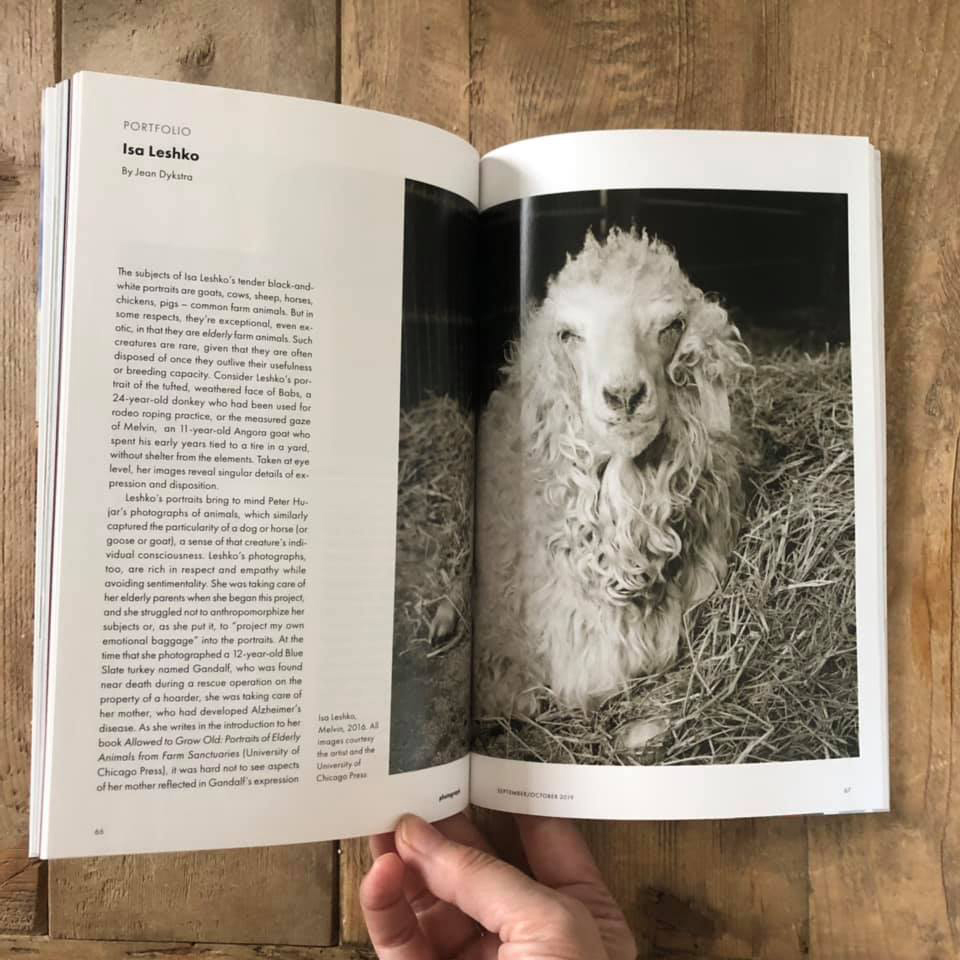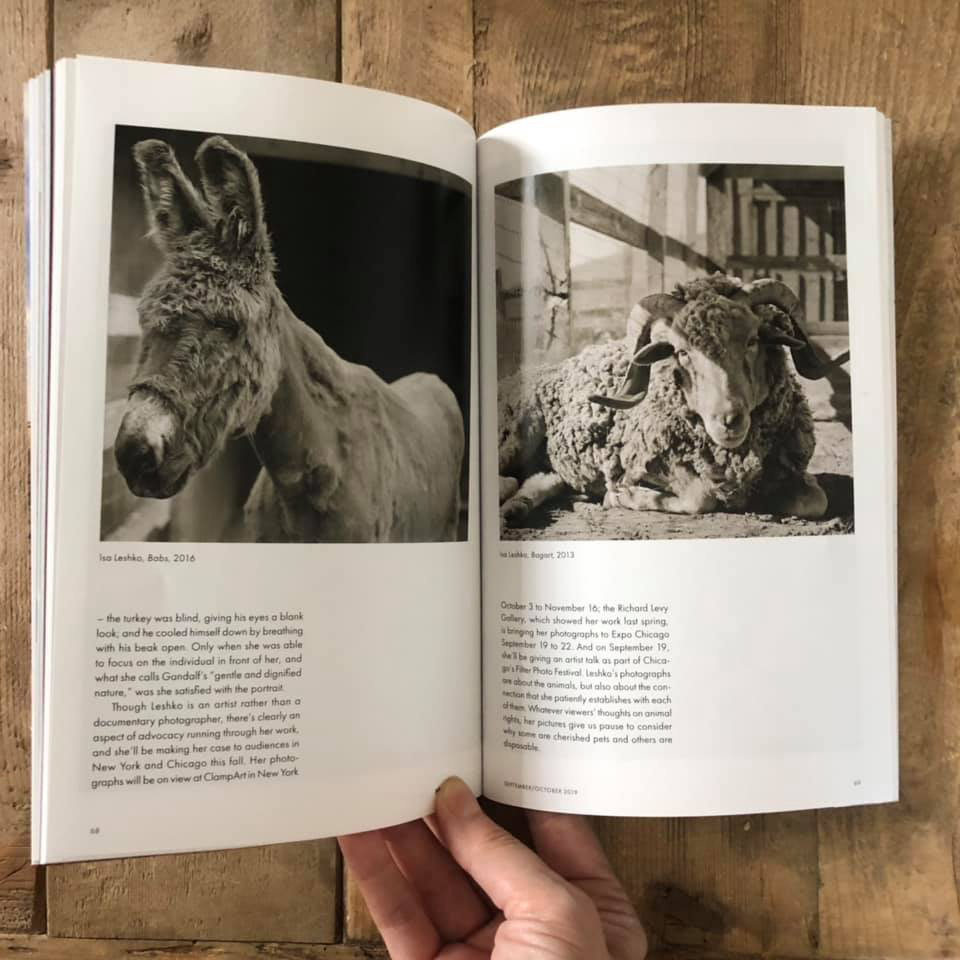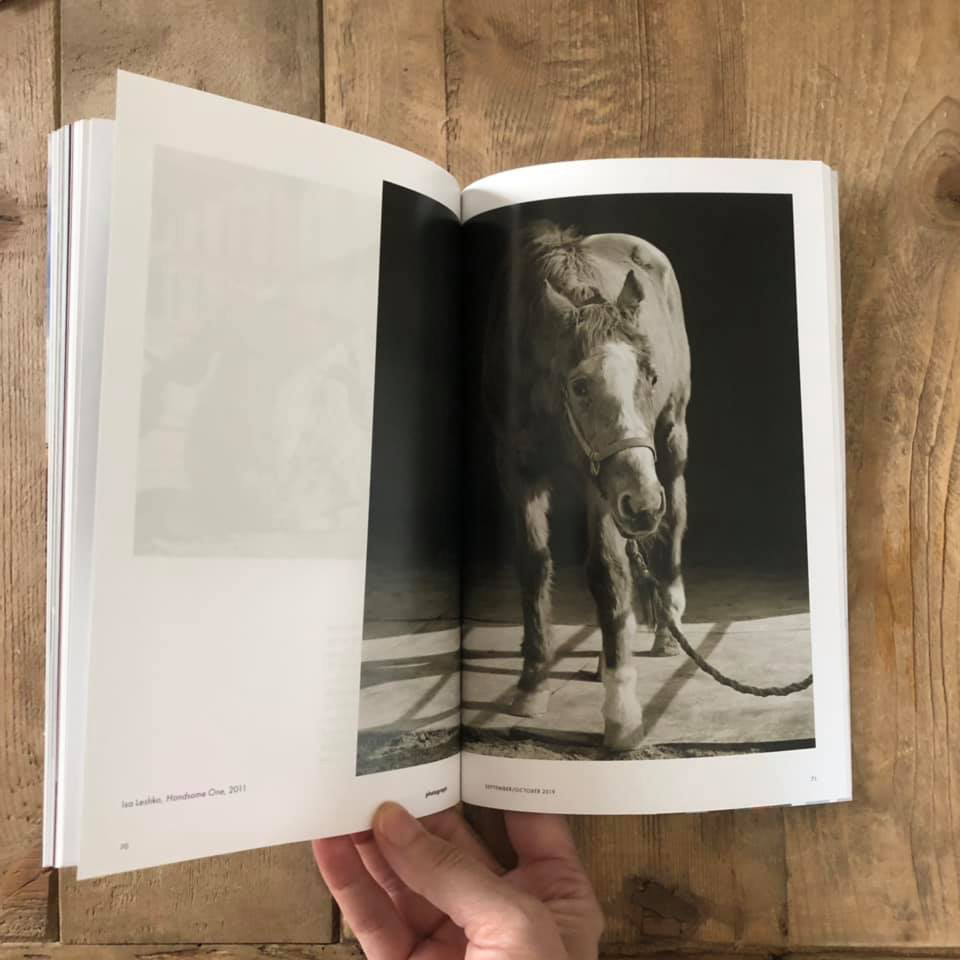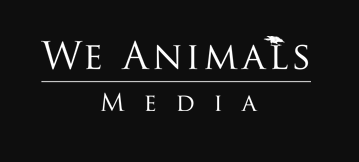Portfolio Feature in Photograph & Other Recent Press
Allowed to Grow Old is featured in the September/October issue of Photograph. The magazine’s editor Jean Dykstra writes: “Leshko’s portraits bring to mind Peter Hujar’s photographs of animals, which similarly captured the particularity of a dog or horse (or goose or goat), a sense of that creature’s individual consciousness. Leshko’s photographs, too, are rich in respect and empathy while avoiding sentimentality….Whatever viewers’ thoughts on animal rights, her pictures give us pause to consider why some are cherished pets and others are disposable.”
Isa and her work were featured in a fantastic profile piece by Brigit Katz for Tenderly. Here is one of her favorite passages from the article:
“[Isa] relates what she initially describes as a “cheesy” anecdote, though she subsequently corrects herself: “It’s funny for a vegan to say cheesy. This is going to really sound Daiya-ish.” Allowed to Grow Old was printed in Altona, a Canadian town not far from Winnipeg. For an intense few days, Leshko was constantly on hand at the press to inspect each page. “It could have been sleep deprivation,” she says, “but I did have this mental picture of all the animals in the project behind me as I was looking at the pages in the book.”
“So,” she adds, “they’re still with me.”
Isa was also recently interviewed by Anna Mackiewicz for We Animals Media. Here is an excerpt from their discussion:
How do you think the way we understand animals is changing?
Our understanding of animals is definitely improving, especially among scientists. From the early twentieth century through to the 1990s, animal behaviorists rejected the idea that animals were capable of thought or emotion. They posited that all animal behavior was the result of hard-wired reflexes or learned associations between positive or negative stimuli. Over the last three decades, this theory has been challenged by research in the fields of evolutionary biology, cognitive ethology, zoology, and neuroscience. Although some behaviorists still resist attributing “human-like” mental processes to nonhuman animals, the prevailing scientific view is that all vertebrates and many invertebrates (e.g., cephalopods such as squids and octopuses) are sentient beings that have emotions and cognitive capabilities we are just beginning to grasp.
That said, we are living in an era in which empathy is in increasingly short supply as xenophobia and nationalism continues to spread throughout Europe and America. Across the world political policies are increasingly designed to maximize cruelty toward minority populations, especially immigrants.
This same callousness is also directed toward non-human animals. It’s true that in recent years there have been some legislative victories for non-human animals in America, such as the successful Yes on 12 campaign in California, which has increased protections for farmed animals from extreme confinement. But there have been many devastating developments, especially regarding the weakening of protections for wildlife and recent evidence that the USDA is failing to report violations of animal welfare laws at puppy mills, research labs and zoos. Also troubling, the Trump administration has proposed a new rule that will cut the number of federal inspectors at pig slaughterhouses by 40 per cent and instead shift oversight to plant employees. Under the new rule there also will be no limit on slaughter-line speeds. This is absolutely gut-wrenching.
Would it be correct to say that you see animal rights as deeply connected to broader rights issues, and the current political environment?
I’ve spent the last several months thinking about the connections between speciesism, racism and sexism in light of what has been unfolding in America. President Trump has called his political enemies “dogs” on several occasions and routinely uses dehumanizing language to refer to undocumented immigrants and refugees. He has gone as far as referring to immigration as an “infestation”. There is even an article on the White House web site describing members of the MS-13 gang as “violent animals.” This likening of humans to animals both dehumanizes people, and reinforces the idea that animals are inferior to humans. History has shown us that governments apply dehumanizing language towards a minority as a precursor to committing atrocities against them.
I have yet to address what has been happening in America through my art. But I have little doubt that my anger and fear over the last several years will find its way into my artwork.






